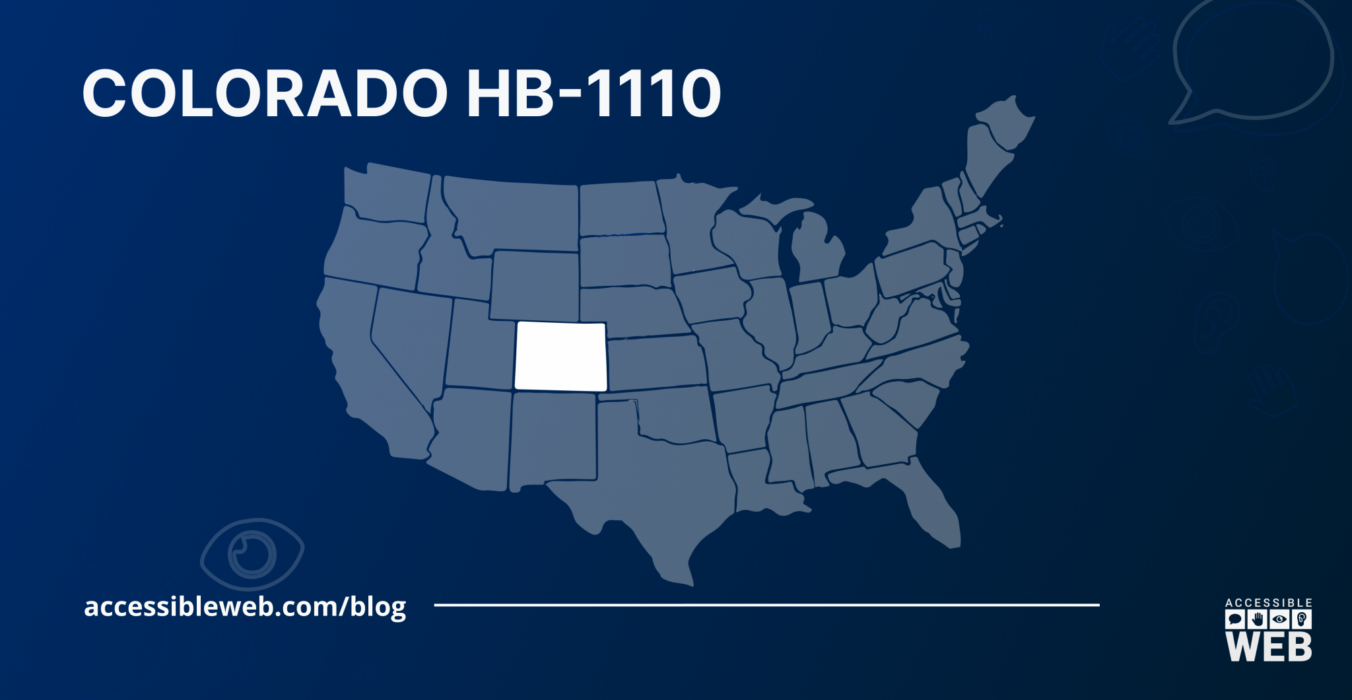
What You Need to Know About CO HB-1110
What is CO HB-1110?
Colorado’s state legislature recently passed House Bill (HB) 1110 making it the first state to require state and local governments to be compliant with digital accessibility standards. These standards already existed at the federal level, but codifying them into state law gives more legal power to those who face discrimination and who are looking to hold the government accountable. CO HB-1110 makes accessibility law enforceable – here’s what you need to know.
Where did CO HB-1110 come from?
Colorado’s new HB-1110 law was championed by democratic lawmaker David Ortiz. Ortiz was elected to the state legislature in 2020 and immediately became a champion for accessibility within the government. With support from the Colorado Cross-Disability Coalition and the National Federation of the Blind, Ortiz helped pass CO HB-1110 stating,
“We definitely didn’t do this alone. We did this with [the] community.”
What does CO HB-1110 law do?
CO HB-1110 codifies into law what already existed in statute for decades, establishing a legal framework to hold government agencies and programs accountable. Additionally, CO HB-1110 actively broadens the definition of discrimination to include two new standards:
- It is discrimination to exclude an individual with a disability from participation in or being denied the benefits of services, programs, or activities provided by any Colorado government entity.
- It is discrimination for any Colorado government entity to fail to develop an accessibility plan by July 1, 2022, and to fail to fully comply with accessibility standards developed by OIT by July 1, 2024.
The passing of this bill establishes a set of guidelines created by the Colorado Office of Information Technology (OIT) that track with the WCAG 2.1 AA standard.
When will Colorado’s HB-1110 law take effect?
All state & local government agencies must submit a written plan establishing accessibility standards to the Office of Information Technology by July 1, 2022.
This plan needs to outline a roadmap to achieve WCAG 2.1AA conformance by July 1, 2024. Starting on July 1, 2024 Colorado state agencies that fail to achieve compliance can be issued discrimination lawsuits.
What if my agency’s website is noncompliant with CO HB-1110?
Failing to conform to CO HB-1110 standards by July 1, 2024 can result in a number of consequences. These range from monetary damages to full-blown civil rights lawsuits.
Any government agency that doesn’t meet the standards laid out by the OIT could be liable for
- Monetary Damages
- Fines payable to plaintiffs
- A court order for injunctive relief.
What do I have to do?
If you are a government agency, you need to have a plan to achieve conformance with Colordo’s OIT. According to the OIT FAQ, local governments are required to:
“By July 1, 2024, develop an accessibility plan using the accessibility standards developed by OIT and be in full compliance with WCAG 2.1 AA Guidelines in the creation and publication of any online content and materials; including, but not limited to text, links, images, forms, PDFs, documents, and embedded third-party applications.”
The most thorough and only way to guarantee full WCAG 2.1AA conformance is through a manual accessibility audit of your site, whether from a trusted third party or certified accessibility specialist. When researching vendors to help achieve your digital accessibility goals, consider the Vendor Accessibility Guidelines & Checklist published by the Colorado Governor’s Office of Information Technology.